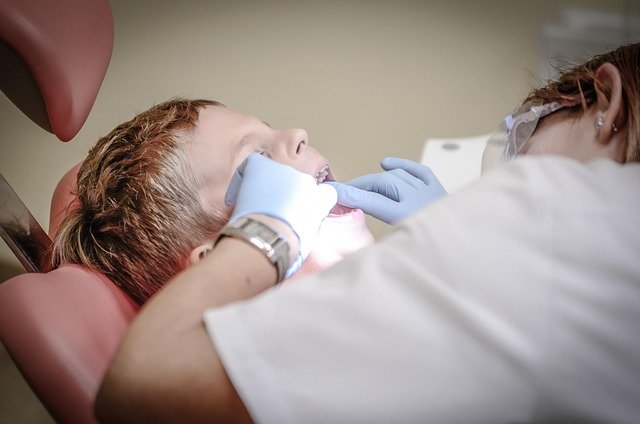Understanding Dental Insurance: Coverage, Benefits, and Options
Dental grant programs provide financial assistance to help cover treatment costs. They may be offered by nonprofits, government initiatives, or research studies. Grants can make services like implants, braces, or cleanings more affordable for eligible applicants.

What are dental grant programs?
Dental grant programs are initiatives that provide financial assistance to individuals who need dental care but may not have the means to afford it. These programs are often offered by non-profit organizations, government agencies, or dental schools. Dental grants can cover a variety of treatments, from basic preventive care to more complex procedures like root canals or dental implants. Unlike traditional dental insurance, grants do not require monthly premiums and are typically awarded based on financial need or specific eligibility criteria.
How do dental grant programs work?
The process of obtaining a dental grant usually involves several steps. First, individuals must research available programs and determine their eligibility. This may include meeting income requirements, residing in a specific geographic area, or having a particular dental condition. Once eligibility is established, applicants typically need to submit an application, which may include proof of income, dental records, and a description of the needed treatment. If approved, the grant funds are usually paid directly to the dental provider rather than the patient.
What types of dental grant programs are available?
Dental grant programs come in various forms, each targeting different demographics or dental needs. Some common types include:
-
Low-income dental grants: These programs assist individuals and families who fall below certain income thresholds.
-
Senior dental grants: Tailored for older adults who may have limited income or inadequate dental coverage through Medicare.
-
Children’s dental grants: Focused on providing dental care to underserved children and teens.
-
Veterans’ dental grants: Designed to supplement VA dental benefits for eligible veterans.
-
Emergency dental grants: Offer assistance for urgent dental procedures to alleviate pain or address serious oral health issues.
How to find and apply for dental grant programs?
Finding and applying for dental grant programs requires some research and effort. Here are some steps to guide you through the process:
-
Start by contacting your state or local health department to inquire about available dental assistance programs.
-
Research national organizations that offer dental grants, such as the American Dental Association Foundation or the Dental Lifeline Network.
-
Check with local dental schools, as they may offer reduced-cost care or have information about grant programs in your area.
-
Explore online resources and databases that list dental grant opportunities.
-
Prepare necessary documentation, including proof of income, dental records, and a detailed explanation of your dental needs.
-
Submit applications to multiple programs to increase your chances of receiving assistance.
-
Follow up with the grant-giving organizations to ensure your application is complete and to inquire about the status of your request.
What are the benefits and limitations of dental grant programs?
Dental grant programs offer significant benefits to those who qualify, but they also have limitations that applicants should be aware of:
Benefits:
-
Financial assistance for necessary dental procedures
-
Access to dental care for those who might otherwise go without
-
Potential for improved oral health and overall well-being
-
No monthly premiums or long-term financial commitments
Limitations:
-
Limited availability and competitive application processes
-
Strict eligibility requirements that may exclude some individuals
-
Potential waiting periods for non-emergency procedures
-
Grants may not cover all needed dental work or ongoing care
How do dental grant programs compare to traditional dental insurance?
While both dental grant programs and traditional dental insurance aim to make dental care more accessible, they differ in several key aspects:
| Aspect | Dental Grant Programs | Traditional Dental Insurance |
|---|---|---|
| Cost | No regular premiums; free if awarded | Monthly or annual premiums |
| Coverage | Typically for specific procedures or treatments | Ongoing coverage for various dental services |
| Eligibility | Based on financial need or specific criteria | Generally available to all who can pay premiums |
| Application Process | Requires application and approval | Enrollment process with less stringent requirements |
| Waiting Periods | May have long waiting periods for approval | Often have shorter waiting periods for certain services |
| Provider Network | May be limited to specific providers | Usually offers a network of participating dentists |
Prices, rates, or cost estimates mentioned in this article are based on the latest available information but may change over time. Independent research is advised before making financial decisions.
In conclusion, dental grant programs can be a valuable resource for individuals who struggle to afford necessary dental care. While they may not offer the comprehensive, long-term coverage of traditional dental insurance, these programs can provide crucial financial assistance for specific dental needs. Understanding the various types of dental grants available, how to apply for them, and their benefits and limitations can help individuals make informed decisions about their oral health care options.
This article is for informational purposes only and should not be considered medical advice. Please consult a qualified healthcare professional for personalized guidance and treatment.




